Is the Summary of the Law the Point of It All?
If so, Bishop Mariann Budde, at age 65, does not seem to understand it very well.
On the surface, it would seem like Bishop Budde wants to love others like Jesus commanded, yet something is missing from her argument because we are supposed to love ourselves too.
“Thou shalt love thy neighbor as thyself,” also means that we do not allow people to harm us and disrespect our healthy boundaries. How can we love God and others when we do not love and respect ourselves first?
Bishop Budde caused a stir when she preached that the “vast majority of immigrants are not criminals,” but “good neighbors” and “faithful members” of religious communities and President Trump should have mercy on them at the Service of Prayer for the Nation on January 21, 2025.
From the pulpit of the beautiful National Cathedral, Bishop Budde asked, "In the name of our God, I ask you to have mercy upon the people in our country who are scared now. There are gay, lesbian and transgender children in Democratic, Republican and independent families, some who fear for their lives."
As discussed in Borders and Boundaries and Freedom, Oh My!, we all need healthy boundaries to live our best life, whether in personal relationships or respecting the laws of other countries. Anyone who disrespects healthy boundaries will have problems. Healthy boundaries are good for everyone, and we expect that living in a civilized society.
As an American, it means that we do not allow people to harm us by crossing those literal boundaries illegally. Illegal aliens (a legal term) are criminals because they broke the law when entering America. That is hardly a good way to begin a path to citizenship by breaking America’s immigration laws.
Ronald Reagan’s amnesty deal with democrats established the Immigration Reform and Control Act of 1986 that was unfair to all those immigrants who came to America legally, but it was supposed to end the invasion. It did not end (and that is an article in itself) so here we are.
We now have countless angel families who have suffered the loss or harm of a loved one committed by illegal aliens for decades now– aliens who should never have been here in the first place. Where is Bishop Budde’s compassion and mercy for America’s angel families?
I thank God each day that I was born an American heir to the American Experiment, and we know that there is a way for those less fortunate – and that way is through legal immigration. I’ve talked with enough legal immigrants to know they are not happy that illegal aliens come to this country illegally after they worked hard to jump through the hoops and pay a lot of money to do so.
So, why is Bishop Budde against legal immigration? Anyone who advocates for those who break our immigration laws is against legal immigration.
On a philosophical level, we can delve further why Bishop Budde believes God makes mistakes - which is the premise of transgender ideology.
Bishop Budde apparently believes God makes mistakes. How could she not see that conflict?
I could go further by stating that anyone who allows a minor child to undergo mutilation of his or her body, via surgery or chemically, condones child abuse. That is not very bishop-like.
As an ordained Episcopal bishop, I would think Budde would understand the Summary of the Law that was always front and center in the Episcopal church, but sadly, she appears to have no understanding of the true meaning behind it. Why is that?
The summary of the law originates in Old Testament separately (Love God - Dt 6:5; and Love Others - Lv 19:18) but it was Jesus who put them together, as quoted in all four Gospels: Mark 12:28-34, Luke 10: 25-29, John 13:34 and most recognized for Episcopalians in Matthew 22:37 – 40. To put it in context:
35 Then one of them, which was a lawyer, asked him a question, tempting him, and saying, 36 Master, which is the great commandment in the law?
37 Jesus said unto him, Thou shalt love the Lord thy God with all thy heart, and with all thy soul, and with all thy mind. 38 This is the first and great commandment.
39 And the second is like unto it, Thou shalt love thy neighbour as thyself.
40 On these two commandments hang all the law and the prophets.
“On these two commandments hang all the Law and the Prophets.” This was a recitation I heard in church as a child, but did not give it much thought until years later when I read my not-even-gently-used [1979] Book of Common Prayer (BCP) that the priest at my family’s church gave me for my high school graduation.
As an older adult, I read it and compared it with my mother’s 1928 BCP and her 1932 BCP of the Reformed Episcopal Church [even the same religion cannot agree] and realized that the Summary of the Law is not in the Rite II service in the 1979 BCP, which is the most popular and common service in the Episcopal church. While it is in the Rite I service, it is often omitted, and Rite I is usually offered for those early risers without any music, if at all.
Furthermore, the Decalogue is also omitted from Rite II, and although it is in Rite I, it is barely uttered – even during Lent. Why is that? [Now, there is high church and low church and, in my travels, lower churches tend to offer Rite I more often.]
Over the last decade or so, I’ve asked various Episcopal priests why the Summary of the Law is absent in Rite II and often omitted in Rite I but was never satisfied with the answer. It’s in the Catechism to the New Covenant, but when is that ever said/heard? It’s in A Penitential Order: Rite Two although that is rarely used. One priest said it was “to mirror the 1548 Order of Communion.” “We say it in our confession of sins.” But that is not the affirmative. And, saying it in the negative doesn’t help us ask the question, how do we Love God and Love Others as Ourselves? Aren’t we supposed to learn this in church?
As much as I’ve pondered why the Summary of the Law was taken out of Rite II, I’ve asked what it means to Love God and Love Others.
We can love God by honoring and keeping all the Commandments. Clear enough.
In 1 John 4:20, “If a man say, I love God, and hateth his brother, he is a liar: for he that loveth not his brother whom he hath seen, how can he love God whom he hath not seen?”
So, we can not hate others if we proclaim to Love God. Ok, that is simple enough to understand – but like the Golden Rule, that simplicity seems easy enough until practiced daily, oy vey.
Yet a key component for practicing Love for God is love and respect for the self. Unless we love and respect our self, we cannot love God. And most of us need to love God first, before we can truly love others. (Although atheists will disagree with me.)
And that self-love means that we respect our physical boundaries and the physical boundaries of others – as in a country’s immigration laws.
From the soft spoken, hypnotic tones of NPR's All Things Considered on January 22, 2025:
Bishop Mariann Edgar Budde joined NPR's All Things Considered on Wednesday to discuss her hope President Trump's new administration would show compassion toward vulnerable communities following a sermon she made on Tuesday.
"I decided to ask him as gently as I could to have mercy," Budde, the Episcopal bishop of Washington, said of her plea to Trump, telling All Things Considered, "how dangerous it is to speak of people in these broad categories, and particularly immigrants, as all being criminals or transgender children somehow being dangerous."
"To be united as a country with so many riches of diversity, we need mercy. We need compassion. We need empathy. And rather than list that as a broad category, as you heard me say, I decided to make an appeal to the president."
"I regret that it was something that has caused the kind of response that it has, in the sense that it actually confirmed the very thing that I was speaking of earlier, which is our tendency to jump to outrage and not speak to one another with respect," she continued. "But no, I won't, I won't apologize for what I said."
So, Bishop Budde, what you fail to recognize is that many Americans do love our selves enough to protect our country from illegal aliens and because of that love, we respect our own boundaries and respect our laws and thus, we believe everyone, new immigrant or American, should respect those laws as we do.
Maybe it’s too generous to say that Bishop Budde does not understand the Summary of the Law.
Maybe Bishop Budde is the “moral busybody” that C.S. Lewis warned us about when he said, “those who torment us for our own good will torment us without end for they do so with the approval of their own conscience.”
How many priests live in multi-million-dollar homes? If this post is correct, when did the Episcopal church go into the banking business of offering loans?
If Bishop Budde lives in a house with 6 bedrooms and 4.5 bathrooms – with two grown children who presumably are on their own - it sounds like Bishop Budde has a lot of space that she would welcome those scared illegal immigrants and transgender children into her own home if she genuinely cared about them.
Why is it that the rich “liberal” moral busybodies want to keep illegal aliens in this country? For most of us who can’t afford (or don’t want) to have someone else clean our small homes or mow our lawns, it’s a question we should ask and a question they should answer.
It finally backfired for democrats promoting dependency on the government since enough democrats realized that democrat policies are harmful to middle-class, working Americans and the continuation of the American Dream, but how do the rich benefit from BLM riots or illegal aliens staying in the country? Cheap labor? But they are rich. Maybe that’s why they are rich. Virtue-signaling?
The argument of who will pick the fruit will end if America ends welfare dependency on the government. Ending welfare dependency would create a “don’t work, don’t eat” society. It used to work [pun intended].
I have no doubt that there are good immigrants from 3rd world countries who will do well in America, but they must assimilate and come here legally. There is a legal process to follow and that is the only right and fair thing to do. So, start filling out that paperwork – in English - outside of America, first. There is nothing wrong with requiring conditions for immigration, such as the requirement to assimilate which begins by learning English prior to entry and/or pathway to citizenship.
Maybe a bigger question to ask is why are the mainstream churches replaced tolerance for all mankind with acceptance for all mankind? The dots connect to the World Council of Churches and the ecumenical movement. Nice idea – everybody believes the same thing – really? Maybe some day, in a galaxy far, far away, but not in the early 21st century world.
Spiritually is 100% personal, thus we will all vary in our personal beliefs – even those in the same church – i.e., the Protestant Episcopal Church in the United States of America split long before the World Council of Churches formed in 1937.
In Letter 211, St. Augustine said, “Cum dilectione hominum et odio vitiorum,” which translates to “With love for mankind and hatred for sins.” Hate the sin, love the sinner. That’s a bad word now…sin.
And another question is why the Summary of the Law and the Decalogue are hardly discussed anymore in the Episcopal church services.
I would love to hear a priest (or a bishop!) explain that. That would be an interesting sermon that I might even pay attention to.





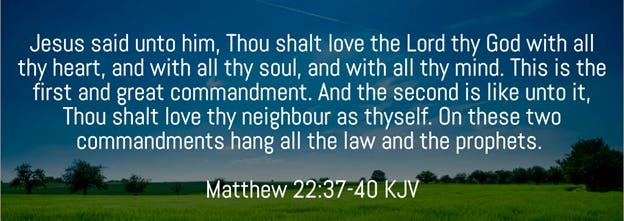

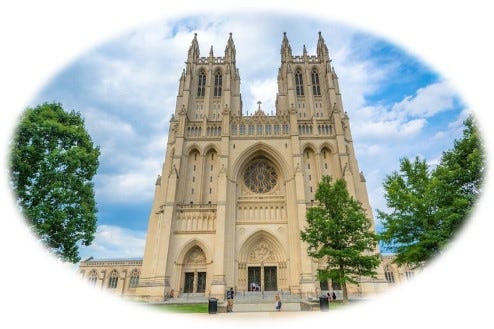
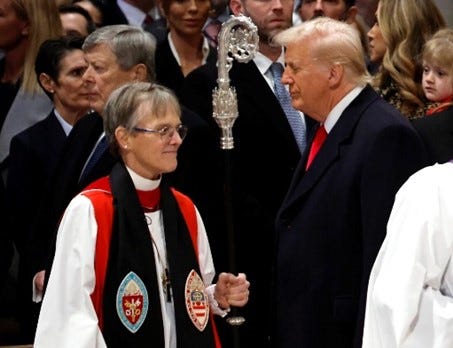
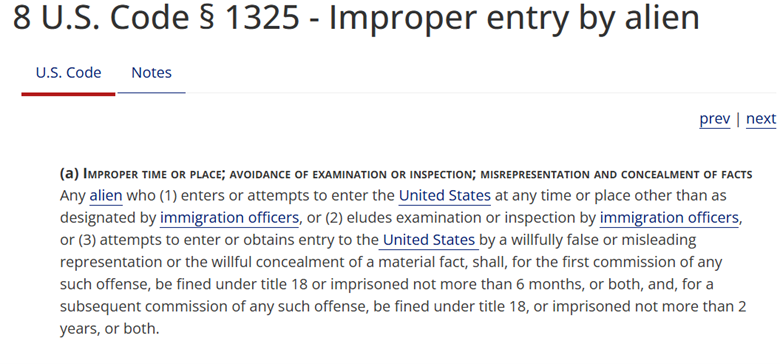

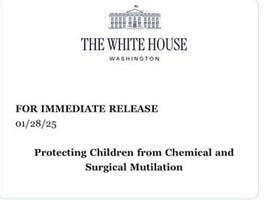
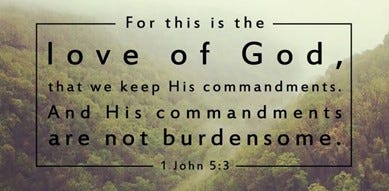
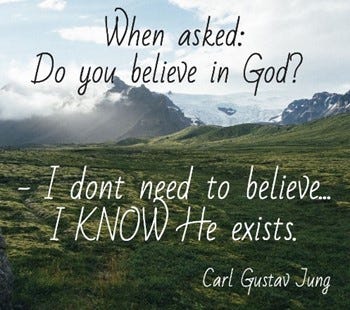
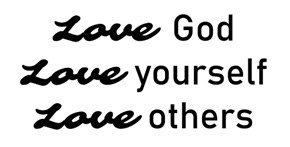
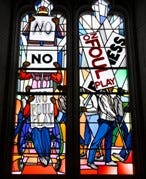
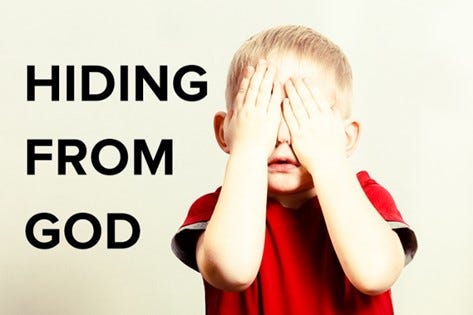
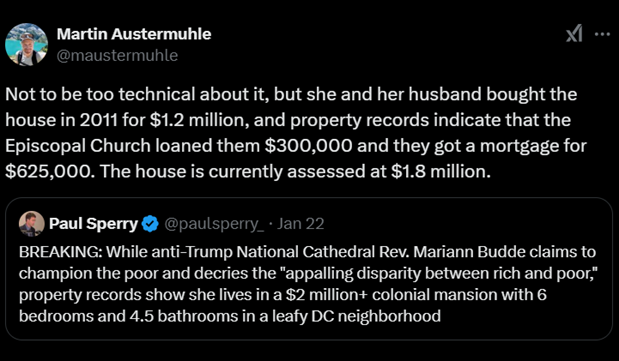

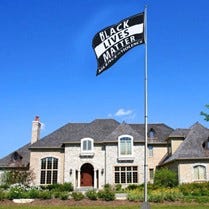
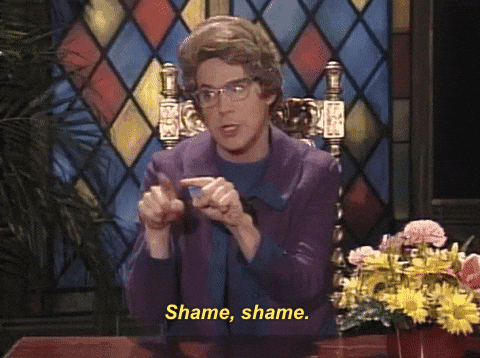
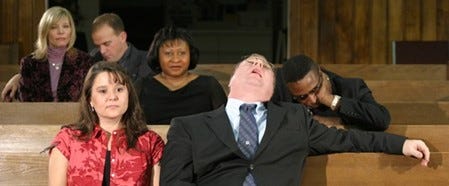
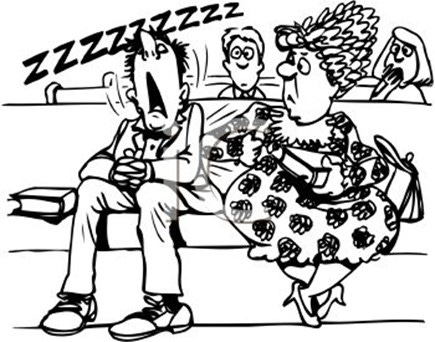


Bishop Budde needs to be relieved, and transferred as quickly and discretely as possible.
The Episcopal church owes Donald Trump a discrete apology. He went to a church service the day after he was inaugurated, and got publicly attacked by an ideologue wearing the mantel of the “National Cathedral”. The so called national cathedral should not be a partisan venue.
Common sense is not so common after all.